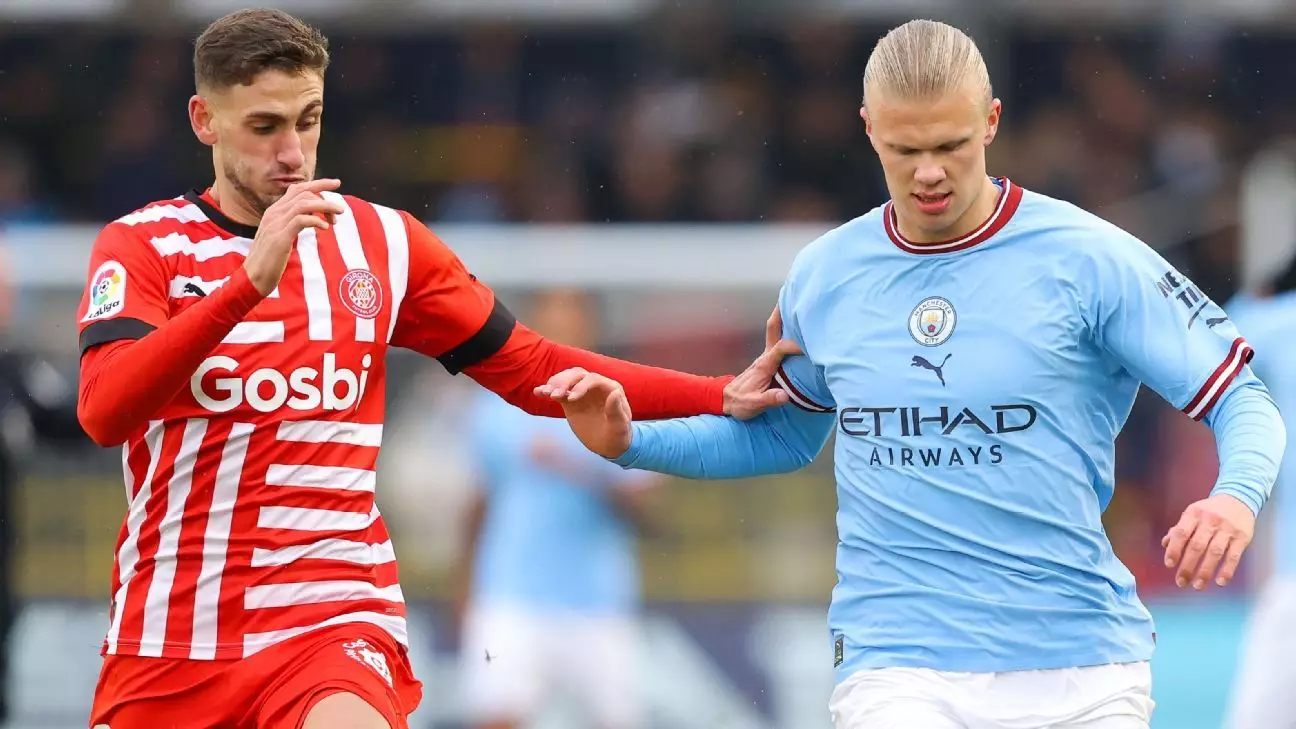Imagine a scenario where Girona, a team just one victory away from winning LaLiga, is faced with the possibility of not achieving that feat in order to benefit their sister club Manchester City’s chances of making it to the Champions League. This hypothetical situation sheds light on the potential pitfalls of multi-club ownership in football. UEFA President Aleksandar Ceferin has emphasized the need for strict regulations surrounding club ownership to ensure transparency and avoid conflicts of interest. The fear of one club being directed to alter its performance to benefit another within the same ownership group looms large and raises concerns about the integrity of the game.
The ties between Girona and Manchester City run deep, with the City Football Group (CFG) owning a significant stake in the Spanish club. Pere Guardiola, the brother of City manager Pep Guardiola, serves as the chairman of Girona, further intertwining the two clubs. The acquisition of players from City to Girona and the presence of key personnel such as Simon Cliff on both clubs’ boards raise questions about the extent of influence and control exerted by CFG over Girona’s operations and performance on the field. The display of Girona’s club crest at Manchester City’s training ground symbolizes the close relationship between the two clubs, potentially blurring the lines of independence and competition.
The case of multi-club ownership extends beyond Girona and Manchester City, with Sir Jim Ratcliffe’s acquisition of a stake in Manchester United raising similar concerns. The prospect of United and Nice, both controlled by Ratcliffe’s INEOS group, qualifying for the same competition presents a challenge for UEFA in maintaining fair play and competition. While UEFA has allowed certain clubs under shared ownership to participate in European competitions by demonstrating clear separation and autonomy in their operations, the potential for conflicts of interest remains high. The need for stringent regulations and oversight to prevent undue influence and manipulation of competition outcomes is evident in the current landscape of multi-club ownership in football.
As Girona sits atop LaLiga and Manchester City competes for a top spot in the Premier League, the looming possibility of conflicting Champions League qualifications for both clubs highlights the urgent need for regulatory intervention. The potential scenario where Girona wins LaLiga and City misses out on the Champions League spot due to shared ownership could serve as a catalyst for significant changes in how multi-club ownership is governed. UEFA’s Club Financial Control Body (CFCB) may face tough decisions in the coming months to address the complex web of ownership entanglements that pose threats to the integrity and fairness of football competitions. The outcome of Girona and City’s seasons could determine the course of action UEFA takes to ensure a level playing field for all clubs involved in multi-club ownership structures.
The intricate relationships and potential conflicts of interest arising from multi-club ownership in football highlight the need for stricter regulations and oversight to safeguard the integrity of the sport. The scenarios presented by clubs like Girona and Manchester City underscore the importance of transparency, independence, and fair competition in football, prompting governing bodies like UEFA to reevaluate and adapt their regulatory frameworks to address the challenges posed by multi-club ownership in the modern game. As the landscape of football ownership continues to evolve, ensuring accountability and ethical practices among clubs under shared ownership is essential to upholding the principles of fairness and sportsmanship in the beautiful game.

Leave a Reply